Balancing Automation and Human Touch in Customer Service
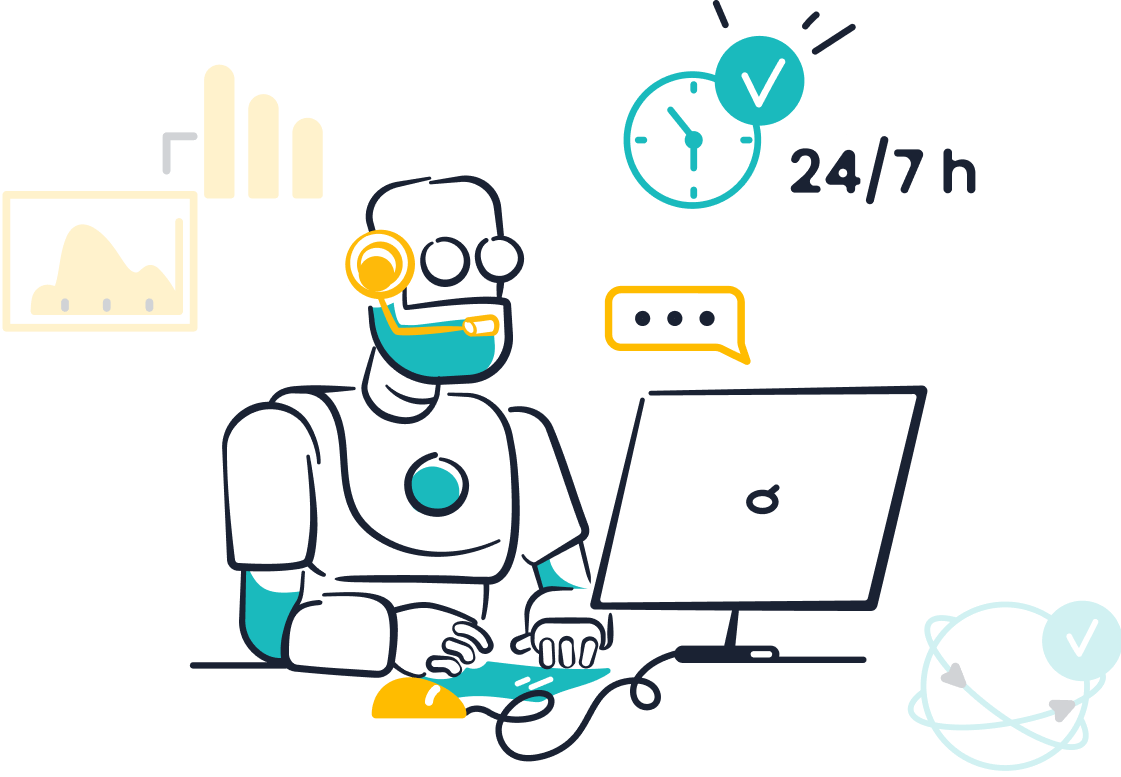
The automation of customer service has transformed how businesses interact with customers. AI in customer service now handles frequent inquiries, speeds up resolutions, and ensures round-the-clock availability. Yet, relying entirely on automation risks losing the personal connection customers value. For instance, while tools like Sobot’s AI-powered chatbot improve efficiency, you might still need human agents for complex issues. This raises a critical question: How can you integrate automation without sacrificing the human touch that builds trust and loyalty?
The Benefits of Customer Service Automation
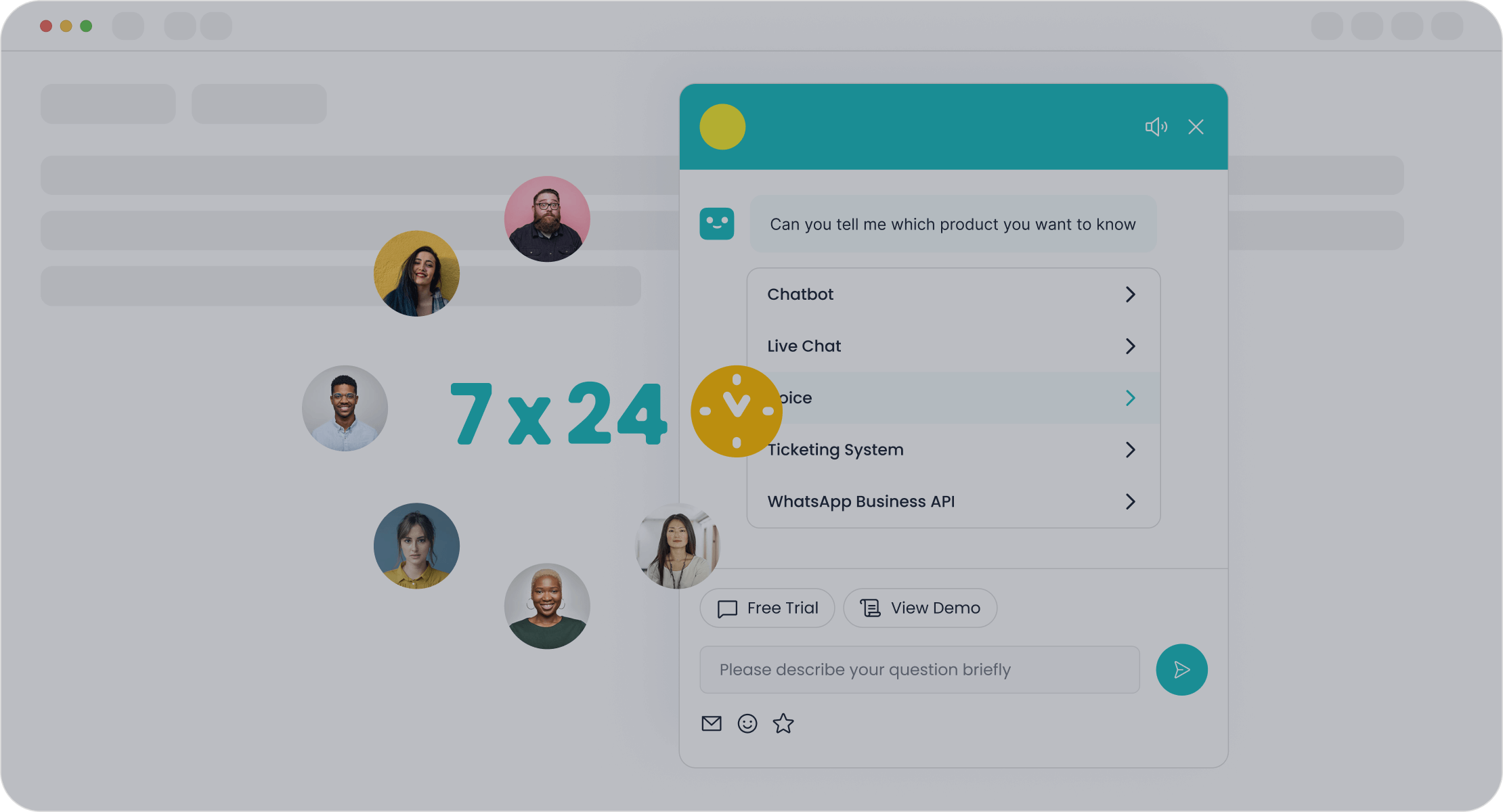
Efficiency and Speed in Automated Customer Service
Automation transforms how you handle customer inquiries. AI-powered tools, like chatbots, can resolve over 70% of customer queries, allowing human agents to focus on complex issues. This division of labor speeds up response times and enhances overall efficiency. For example, businesses save an average of $300,000 annually by using chatbots, as they reduce the need for additional staffing. Key performance indicators (KPIs) such as average resolution time and initial response time highlight these improvements.
| KPI | Description |
|---|---|
| Average Resolution Time | Measures the average time taken to resolve customer issues. |
| Initial Response Time | Tracks the time taken to respond to customer inquiries initially. |
By automating satisfaction surveys, you can gather immediate feedback and adapt services quickly. This ensures your customer service automation strategy remains effective and aligned with customer expectations.

Scalability for Growing Businesses with Sobot Chatbot
As your business grows, managing increasing customer inquiries becomes challenging. Sobot Chatbot offers a scalable solution by handling repetitive queries efficiently. After implementing Sobot Chatbot, businesses have reported an 80% reduction in response time and a 20% increase in agent efficiency. These improvements allow you to allocate resources strategically, ensuring personalized service for VIP customers while maintaining high-quality support for others.
The chatbot’s omnichannel capabilities enable seamless interactions across platforms like WhatsApp and SMS, ensuring consistent service delivery. Its multilingual support further enhances scalability, allowing you to cater to diverse customer bases without additional staffing costs. This scalability not only improves operational efficiency but also drives business growth by enhancing customer satisfaction.
24/7 Availability and Accessibility Through Automation
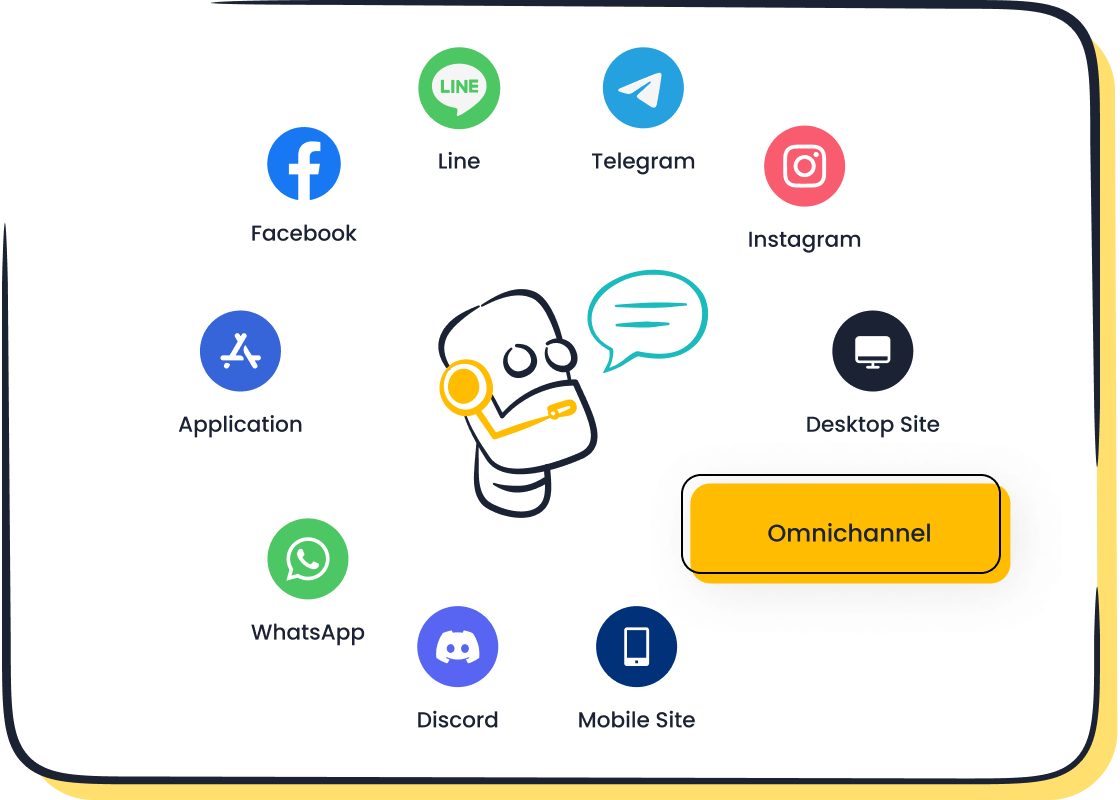
Customer service automation ensures your brand is always accessible. Tools like Sobot’s AI-powered chatbot provide 24/7 availability, allowing customers to interact with your business at any hour. This continuous support reduces response times and prevents customers from feeling stranded during off-hours.
| Evidence Type | Description | Benefit |
|---|---|---|
| Self-Service Options | Customers can access help whenever needed through self-service options. | Higher customer satisfaction. |
| Automated Systems | Automated customer systems are available 24/7, ensuring no customer is stranded. | Continuous customer support. |
| AI-Powered Chatbots | Chatbots handle inquiries instantly, providing 24/7 availability. | Reduced response times. |
By offering self-service options and instant responses, you can enhance customer satisfaction and build trust. Sobot’s chatbot exemplifies this benefit, ensuring your customers receive timely assistance while your team focuses on strategic tasks.
Enhancing Human Agents’ Performance with AI in Customer Service
AI doesn’t just replace human agents; it empowers them. By integrating AI tools like Sobot’s solutions into your customer service operations, you can enhance your team’s performance and efficiency. AI acts as a co-pilot, assisting agents in real-time and enabling them to deliver faster, more accurate responses.
How AI Supports Human Agents
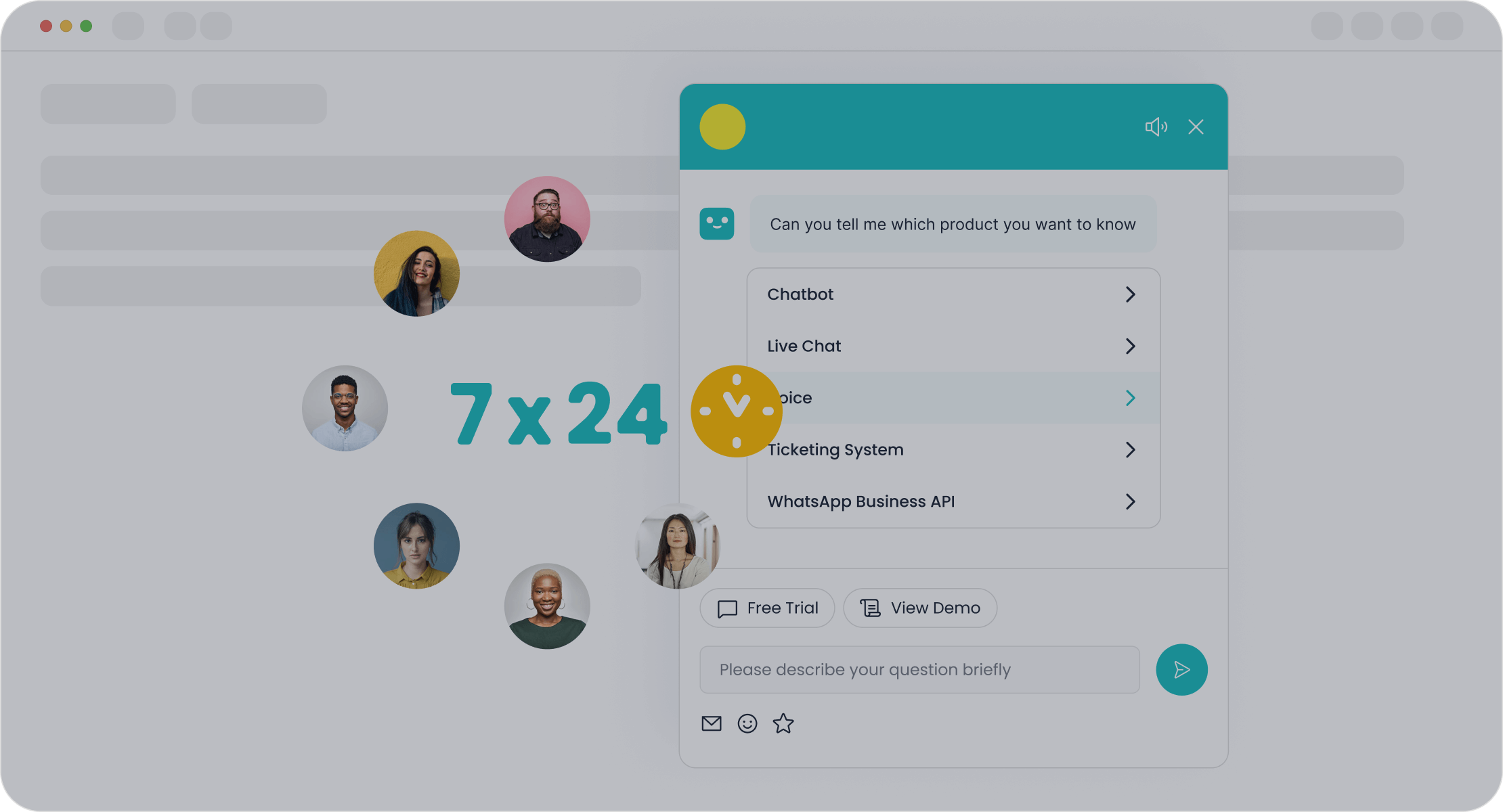
- Real-Time Assistance: AI tools analyze customer queries instantly and suggest appropriate responses. This reduces the time agents spend searching for information. For example, Sobot’s AI copilots provide agents with pre-drafted replies and summaries, helping them resolve issues 30% faster.
- Knowledge Base Optimization: AI continuously updates and organizes your knowledge base. This ensures agents always have access to the latest information. Sobot’s AI-powered knowledge base reduces manual maintenance by up to 90%, as seen in OPPO’s case study.
- Handling Repetitive Tasks: AI chatbots manage routine inquiries, freeing agents to focus on complex problems. This division of labor improves job satisfaction and reduces burnout.
Tip: Use AI to handle FAQs and let your agents focus on building customer relationships. This balance improves both efficiency and customer satisfaction.
Benefits of AI-Enhanced Performance
| Benefit | Impact on Customer Service |
|---|---|
| Faster Response Times | Agents resolve issues quicker with AI assistance. |
| Improved Accuracy | AI minimizes errors by providing precise information. |
| Higher Job Satisfaction | Agents focus on meaningful tasks, reducing stress from repetitive work. |
Sobot’s AI solutions, such as its chatbot and omnichannel support, exemplify how technology can elevate human performance. By combining automation with human expertise, you create a customer service model that is both efficient and personal. This approach not only enhances your team’s productivity but also strengthens customer trust and loyalty.
Ready to empower your agents? Explore Sobot’s AI solutions here.
The Risks of Over-Automation in Customer Service
Lack of Personalization in Automated Customer Service
Over-automation can strip away the human touch that customers value. While automated customer service excels at handling repetitive tasks, it often struggles to deliver personalized experiences. Customers expect interactions that feel tailored to their needs, especially in industries like retail and e-commerce. The lack of human interaction has become a significant pain point for many consumers, particularly after the pandemic.
For example, AI language models sometimes provide tone-deaf responses, failing to create emotional connections. This can leave customers feeling unimportant or misunderstood. Missed upselling opportunities also arise when automation cannot recognize subtle customer cues. A chatbot might answer a query about a product but fail to suggest complementary items, which a human agent could easily do.
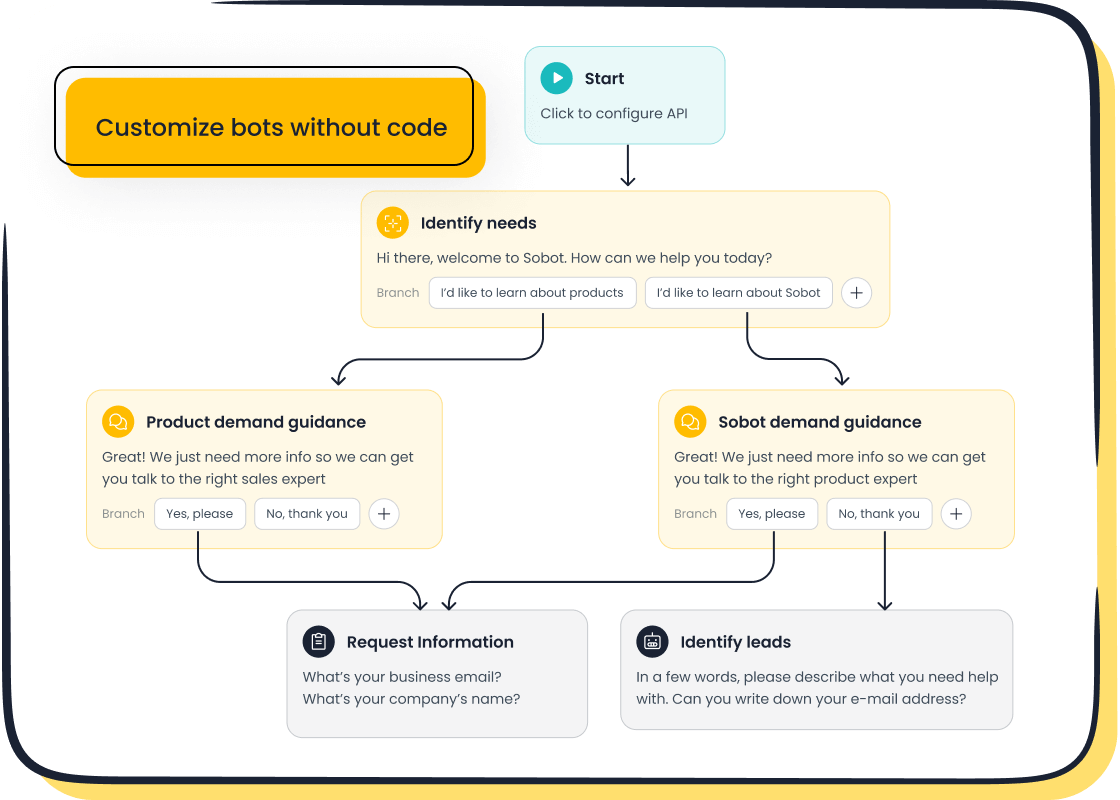
To address this, businesses should consider hybrid models. Sobot’s AI-powered chatbot, for instance, handles routine inquiries while allowing human agents to step in for more nuanced conversations. This approach ensures efficiency without sacrificing the personal touch.
Challenges in Handling Complex Issues with Automation
Automated customer service often struggles with complex problems requiring human intuition. AI systems excel at straightforward tasks but lack the emotional intelligence needed for intricate issues. For instance, a chatbot might fail to resolve a billing dispute or address a technical glitch effectively.
Poorly designed automation systems can frustrate customers, leading to negative experiences. Many customers value emotional connections, which are essential for satisfaction and loyalty. Without these, even the most advanced systems can fall short.
Sobot’s solutions mitigate these challenges by integrating AI copilots that assist human agents. These copilots provide real-time suggestions, enabling agents to handle complex queries more effectively. This collaboration ensures that customers receive accurate and empathetic support, even for challenging issues.
Potential Customer Frustration and Brand Reputation Risks
Over-automation can lead to customer frustration, which directly impacts your brand’s reputation. A survey by Emplifi revealed that 63% of participants would abandon a brand due to poor customer experience. Additionally, 86% of customers would leave a brand after just two or three bad experiences.
Many customers have encountered long wait times or unhelpful automated responses, especially during after-sales support. These negative experiences can overshadow an otherwise excellent sales process. Customers expect consistency in quality and service. They want assurance that any issues will be resolved quickly and effectively.
By combining automation with human expertise, you can avoid these pitfalls. Sobot’s omnichannel solutions ensure seamless transitions between automated systems and human agents, reducing frustration and building trust. This balance not only enhances customer satisfaction but also protects your brand’s reputation.
Addressing Data Privacy Concerns in Customer Service Automation
Data privacy remains a critical concern in customer support automation. As businesses increasingly rely on AI-driven tools, the risks associated with data breaches and unauthorized access grow. These incidents can compromise sensitive customer information, eroding trust and damaging your brand's reputation. For example, AI systems often collect vast amounts of data to improve performance, but without robust safeguards, this data becomes vulnerable to misuse.
The rapid development of AI technologies often outpaces regulatory frameworks. This leaves businesses without clear guidelines on how to protect personal data effectively. Over time, even minor privacy harms, such as unwanted communications or data sharing without consent, accumulate. These issues contribute to a significant decline in public trust, which can negatively impact customer loyalty and the broader digital economy.
To address these challenges, you must prioritize ethical and legal considerations in your automation strategy. Implementing robust data protection measures, such as encryption and GDPR compliance, ensures customer data remains secure. Sobot’s AI solutions, for instance, emphasize data privacy by offering features like continuous encrypted backups and compliance with global regulations. These measures not only protect sensitive information but also foster trust among your customers.
Transparency also plays a vital role in maintaining customer loyalty. Informing customers about how their data is collected, stored, and used builds confidence in your automation practices. Additionally, providing clear opt-in and opt-out options empowers customers to control their data, further enhancing their trust in your brand.
By addressing privacy concerns proactively, you can leverage customer support automation to improve efficiency without compromising customer trust. This balance strengthens your relationship with customers, ensuring long-term loyalty and satisfaction.
Strategies for Balancing Automation and Human Touch
Implementing Hybrid Models with Sobot Solutions
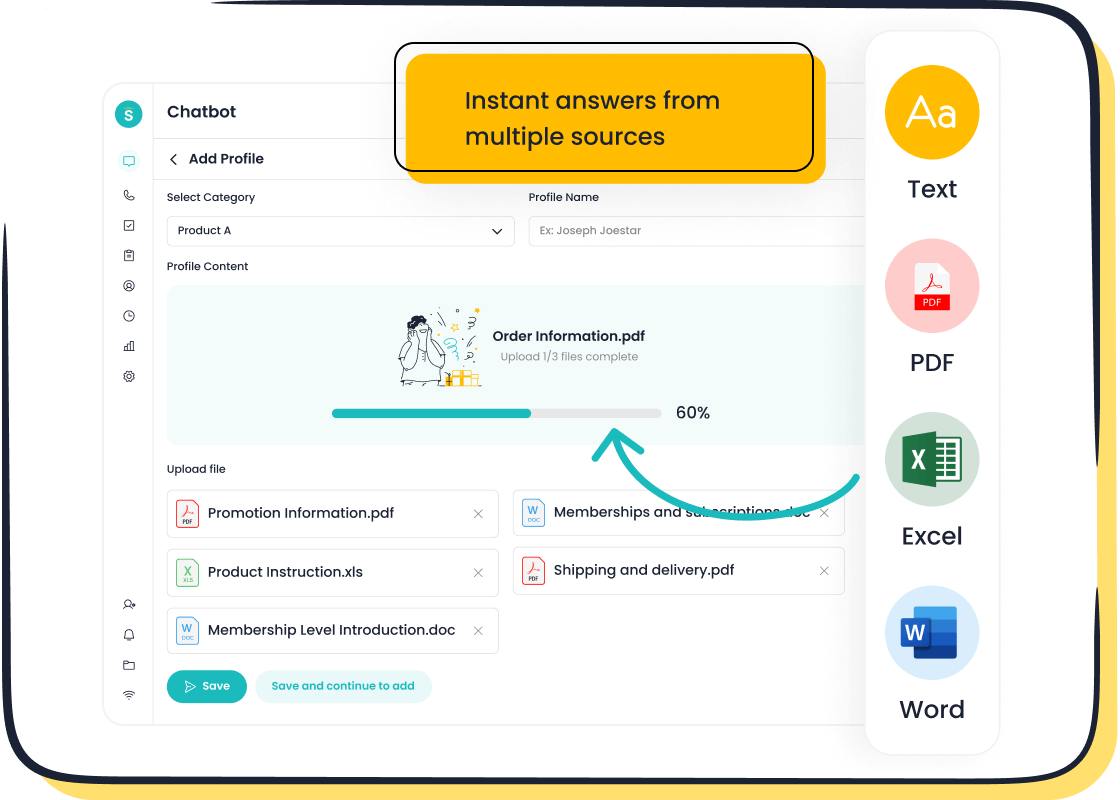
Hybrid models combine the efficiency of AI-powered customer service with the empathy of human agents. These models allow AI to handle high-volume, low-complexity tasks while human agents focus on emotionally charged or complex issues. For example, Sobot’s AI-powered chatbot filters and prioritizes customer queries, ensuring faster response times for routine inquiries. This approach increases resolution rates by 25% for complex problems, as human agents can dedicate their time to tasks requiring critical thinking and emotional intelligence.
| Evidence Description | Key Findings |
|---|---|
| AI handles high-volume, low-complexity tasks | Ensures human agents manage emotionally charged and sensitive issues |
| Hybrid approach mitigates challenges | Balances efficiency of AI with empathy of human interaction |
| AI filters and prioritizes queries | Increases resolution rates by 25% for complex issues |
Sobot’s solutions exemplify best practices in hybrid models. Its AI chatbots seamlessly integrate with automated ticketing systems, enabling self-service portals for customers while providing human fallback options when needed. This balance ensures personalized customer service without compromising efficiency. By adopting hybrid models, you can leverage AI-powered tools to streamline operations while maintaining the human touch that builds trust and loyalty.
Ensuring Human Fallback Options for Customer Satisfaction
Human fallback mechanisms are essential for maintaining customer satisfaction in automated systems. These mechanisms ensure customers receive support when AI-powered chatbots fail to understand their queries. For instance, Sobot’s automated ticketing systems escalate complex issues to human agents, ensuring customers always have access to personalized customer service.
- Fallback mechanisms guarantee customer support availability.
- Automatic escalation to human agents resolves complex issues effectively.
- Alternative contact methods during outages enhance customer access to support.
Fallback rates measure the percentage of queries AI systems fail to address. A high fallback rate indicates a need for better training or optimization of the chatbot’s knowledge base. Sobot’s AI-powered chatbot minimizes fallback rates by continuously updating its knowledge base with data-driven insights. This ensures customers experience fewer disruptions and higher satisfaction. Post-conversation surveys and user satisfaction scores further illustrate the impact of fallback options, helping you refine your customer service strategy.
Tip: Always provide alternative contact methods, such as live chat or phone support, to ensure customers feel valued and supported.
Regular Updates and System Optimization for AI in Customer Service
AI systems require regular updates to remain effective and aligned with customer expectations. Outdated systems can lead to errors, slow response times, and customer dissatisfaction. Sobot’s AI-powered chatbot exemplifies best practices in system optimization. Its no-coding-required interface allows businesses to update workflows easily, ensuring self-service portals remain efficient and accurate.
Regular updates improve chatbot performance by refining algorithms and expanding knowledge bases. For example, Sobot’s AI solutions optimize automated ticketing systems by analyzing customer interactions and identifying gaps in service delivery. These updates enhance faster response times and ensure AI systems adapt to evolving customer needs.
Optimization also involves monitoring system performance through metrics like resolution rates and user satisfaction scores. Sobot’s AI copilots assist human agents by providing real-time suggestions, reducing errors and improving accuracy. By prioritizing updates and optimization, you can ensure your AI-powered customer service tools deliver consistent, high-quality support.
Note: Schedule routine system checks and updates to maintain efficiency and reliability in your AI-powered tools.
Training Human Agents to Collaborate with Automation Tools
Automation tools like AI-powered chatbots and ticketing systems have revolutionized customer service. However, their true potential emerges when human agents collaborate effectively with these tools. Training your team to work alongside automation ensures seamless operations, enhances customer satisfaction, and boosts overall performance.
Why Training Matters
When agents understand how to use automation tools, they can leverage them to improve efficiency. For instance, AI copilots, like those offered by Sobot, assist agents by providing real-time suggestions and pre-drafted responses. This reduces the time spent searching for information and allows agents to focus on resolving customer issues. Without proper training, these tools may remain underutilized, leading to missed opportunities for improving service quality.
Key Areas of Training
To ensure successful collaboration, focus on these critical areas during training:
-
Understanding Automation Capabilities
Teach your agents what automation tools can and cannot do. For example, Sobot’s AI chatbot handles repetitive queries, but agents must step in for complex or emotionally sensitive issues. This clarity helps agents know when to rely on automation and when to take control. -
Interpreting AI Insights
AI tools often provide valuable insights, such as customer sentiment analysis or product recommendations. Training your team to interpret these insights enables them to personalize interactions and upsell effectively. For instance, Sobot’s AI copilots offer summaries and suggestions that agents can use to enhance customer conversations. -
Optimizing Hybrid Teamwork
Encourage agents to view automation as a partner rather than a replacement. Hybrid human-AI teams often outperform humans or AI alone. A study showed that hybrid teams achieved better diagnostic accuracy than endoscopists working independently. This principle applies to customer service, where collaboration between agents and AI leads to superior outcomes.
| Group | Performance Metric | Result |
|---|---|---|
| Expert Endoscopists | Accuracy | Higher performance overall |
| Non-Expert Endoscopists | Accuracy | Comparable to experts with AI assistance |
| Hybrid Human–AI Teams | Diagnostic Performance | Better accuracy than endoscopists alone |
Practical Training Tips
- Simulate Real Scenarios: Use role-playing exercises to demonstrate how automation tools like Sobot’s chatbot handle queries. Show agents how to intervene when necessary.
- Provide Ongoing Support: Offer regular workshops and updates to keep your team informed about new features or system optimizations.
- Encourage Feedback: Create a feedback loop where agents can share their experiences with automation. Use this input to refine your training programs and improve tool usability.
Tip: Start small by training a pilot team to work with automation tools. Gradually expand the program based on their feedback and results.
Benefits of Collaboration Training
Training your agents to collaborate with automation tools delivers measurable benefits. It improves response times, enhances accuracy, and boosts job satisfaction. Agents feel empowered when they can rely on AI for routine tasks, allowing them to focus on meaningful interactions. Customers, in turn, enjoy faster resolutions and more personalized service.
Sobot’s solutions, such as its AI-powered chatbot and omnichannel support, exemplify how automation can complement human expertise. By investing in training, you ensure your team maximizes the potential of these tools, creating a balanced customer service model that combines efficiency with empathy.
Ready to transform your customer service? Explore Sobot’s training-friendly automation tools here.
Real-World Examples of Balanced Customer Service Models

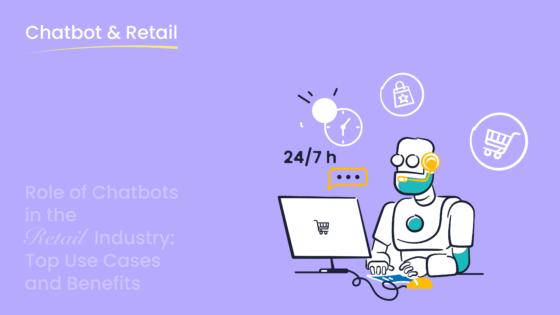
Case Study: OPPO’s Success with Sobot Chatbot
OPPO, a global leader in smart devices, faced challenges during peak shopping periods. Customer inquiries surged, overwhelming their human agents and leading to longer wait times. To address this, OPPO partnered with Sobot to implement a hybrid customer service model. Sobot’s AI-powered chatbot handled repetitive queries, allowing human agents to focus on complex issues. This collaboration significantly improved efficiency and customer satisfaction.
The results were remarkable. OPPO achieved an 83% chatbot resolution rate, meaning most inquiries were resolved without human intervention. Positive feedback soared to 94%, reflecting the effectiveness of their balanced approach. Additionally, the repurchase rate increased by 57%, showcasing the impact of improved customer experiences. By integrating Sobot’s chatbot with their global communication channels, OPPO streamlined operations and reduced knowledge base maintenance efforts by 90%.
This case highlights how a hybrid model can enhance service quality while maintaining a personal touch. You can achieve similar results by leveraging tools like Sobot’s chatbot to balance automation with human expertise.
Example: AI-Assisted Call Centers in Retail
Retail businesses often struggle to meet customer expectations due to high inquiry volumes and the need for personalized interactions. AI-assisted call centers have emerged as a solution, combining automation with human support to deliver exceptional service. These centers use AI tools to analyze customer data, provide tailored recommendations, and automate routine tasks.
For example, AI chatbots enable customers to resolve issues independently, improving efficiency and satisfaction. Advanced analytics track customer sentiment and identify patterns, helping businesses refine their strategies. This approach enhances operational efficiency and reduces costs, allowing agents to focus on complex issues.
| Benefit | Example |
|---|---|
| Personalized Interactions | AI analyzes customer data to provide tailored recommendations, enhancing satisfaction and retention. |
| Improved Self-Service Options | AI chatbots enable customers to resolve issues independently, increasing efficiency and satisfaction. |
| Advanced Data Analytics | AI tools track customer sentiment and identify patterns, helping to improve service and operations. |
| Enhanced Efficiency through Automation | AI automates routine tasks, allowing agents to focus on complex issues and reducing operational costs. |
Retailers using AI-assisted call centers report higher customer satisfaction and loyalty. By adopting similar solutions, you can optimize your operations and create memorable customer experiences.
Lessons from Industry Leaders in Customer Service Automation
Industry leaders have demonstrated that balancing automation with human interaction is essential for effective customer service. Companies that invest in automation see significant cost savings and improved service quality. However, success depends on thoughtful design and ensuring customers have access to human support when needed.
- Companies allocating at least 20% of their IT budget to automation achieved an average of 22% in cost savings.
- Automation leaders reduced process costs by 22% in 2023, while laggards managed only 8%.
- The top quartile of automation leaders lowered costs by an average of 37%.
These statistics underscore the importance of strategic investment in automation. For example, Taylor & Hart doubled their revenue by focusing on customer experience and tracking Net Promoter Scores (NPS). Similarly, Cox Communications implemented a Voice of the Customer (VoC) program, leading to an 11-point NPS increase and reduced churn.
- Taylor & Hart: Prioritized customer experience and NPS tracking, resulting in a 2x revenue increase.
- Cox Communications: Improved customer experience through a VoC program, achieving an 11-point NPS increase.
These examples show that automation, when combined with human expertise, can transform customer service. By following these lessons, you can enhance efficiency, reduce costs, and build lasting customer relationships.
The Future of Customer Service Automation
Emerging Trends in AI and Automation of Customer Service
AI and automation are reshaping customer service, introducing trends that redefine how businesses interact with customers. One major trend is the integration of AI into business operations. Companies that adopt AI see higher productivity and cost savings. For instance, AI tools like Sobot’s chatbot automate up to 70% of customer service tasks, freeing agents to focus on strategic roles.
Another trend is the growing complexity of AI applications. Businesses now use AI for advanced tasks like sentiment analysis and predictive analytics. These tools enhance real-time conversations and create personalized experiences. For example, Sobot’s AI copilots analyze customer sentiment, enabling agents to respond empathetically and accurately.
| Statistic/Trend | Description |
|---|---|
| AI Impact on Productivity | Classifying service issues with AI increases agent productivity by 1.2 hours daily. |
| Cost Reduction | Conversational AI is predicted to cut contact center costs by $80 billion by 2026. |
| Sentiment Analysis Popularity | AI-backed sentiment analysis tools are gaining traction in customer service. |
These trends highlight the transformative potential of AI in improving customer experience and operational efficiency.
The Role of Human Agents in the Future of Customer Support
Human agents will remain vital in customer support, even as AI adoption grows. AI tools like Sobot’s solutions automate repetitive tasks, but human agents excel in areas requiring empathy and critical thinking. Future strategies will prioritize employee well-being and skill development to retain skilled agents.
- AI optimizes schedules, allowing agents to focus on complex issues.
- Continuous learning ensures agents stay updated with evolving customer expectations.
- Employee engagement initiatives improve job satisfaction and retention.
For example, Sobot’s AI copilots assist agents by providing real-time suggestions, enabling faster and more accurate responses. This collaboration ensures a balanced approach, where automation enhances human capabilities rather than replacing them.
Predictions for Customer Experience Evolution with Sobot
The future of customer experience will revolve around empathy, speed, and personalization. Businesses will shift from basic user queries to predictive analytics, enabling real-time, contextual engagement. Tools like Sobot’s chatbot will play a key role in this evolution.
- AI will deliver tailored experiences based on customer data and sentiment analysis.
- Automation will reduce response times, ensuring faster resolutions.
- Predictive tools will anticipate customer needs, creating proactive support models.
Sobot’s solutions already exemplify these advancements. By integrating AI-powered chatbots and omnichannel support, you can deliver human-like interactions that build trust and loyalty. This approach ensures your customer experience strategy stays ahead of the curve.
Balancing automation with human interaction is essential for delivering exceptional customer service. Automation enhances efficiency, while human agents provide empathy and creativity. By adopting hybrid models, you can achieve faster decision-making, improved accuracy, and stronger customer retention.
| Metric | Impact |
|---|---|
| Decision-making time reduction | 30% reduction with real-time data processing |
| Forecast accuracy improvement | 25% increase with predictive analytics |
| Customer retention improvement | Up to 35% improvement with journey analytics |
Sobot’s AI-powered solutions exemplify this balance, empowering businesses to optimize operations while maintaining a personal touch. As customer expectations evolve, combining technology with human expertise will define the future of customer service.
FAQ
What is the role of automated responses in customer service?
Automated responses streamline customer service by addressing common queries instantly. They reduce wait times and improve efficiency. For example, Sobot’s AI-powered chatbot uses automated responses to handle repetitive tasks, allowing human agents to focus on complex issues. This balance enhances customer satisfaction and operational productivity.
How can automation improve customer satisfaction?
Automation ensures faster resolutions and 24/7 availability. Tools like Sobot’s chatbot provide instant support, reducing frustration during peak times. By handling routine inquiries efficiently, automation allows your team to deliver personalized service for complex needs, which boosts customer satisfaction and loyalty.
Are automated responses suitable for all customer interactions?
Automated responses work best for routine or repetitive queries. However, they may struggle with complex or emotionally sensitive issues. Sobot’s hybrid model combines automation with human agents, ensuring customers receive empathetic and accurate support when needed.
How does Sobot ensure data privacy in automated customer service?
Sobot prioritizes data security with features like GDPR compliance and encrypted backups. These measures protect sensitive customer information, fostering trust and ensuring customer satisfaction. Transparency about data usage further strengthens customer confidence in automated systems.
What industries benefit most from automated responses?
Industries like retail, e-commerce, and financial services gain the most from automated responses. These sectors handle high inquiry volumes, making tools like Sobot’s chatbot essential for efficiency. Automation reduces costs, improves response times, and enhances customer satisfaction across these industries.
See Also
Enhancing Efficiency With AI-Driven Customer Service Solutions
Understanding The Efficiency Of Call Center Automation
Transforming Customer Support With AI Service Agents
